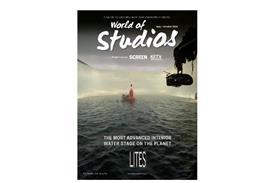Ted Leonsis, producer of Nanking, is also the vice-chairman of AOL and a crusader for making a new type of film. Lily Oei reports.
Film-makers have long depended on the generosity of outside investors. But by prioritising impact over profit, Ted Leonsis, producer of documentary Nanking, has added a twist to the familiar formula, and given it a name - filmanthropy.
With Nanking, Leonsis, who is vice-chairman of AOL, joins a growing list of media-tycoons-turned-socially-responsible-producers, including Ebay co-founder Jeff Skoll (An Inconvenient Truth, Chicago 10), former cable TV chief Albie Hecht (War/Dance), and software executive Charles Ferguson, who also wrote and directed No End In Sight.
According to Leonsis, an established philanthropist, rethinking the end goal is what separates filmanthropy from traditional film-making. 'It's really just another way of giving back. The metric of success becomes, 'How much good can the film do''' he explains.
'I look at the psychic payback as opposed to just the business.' Pointing to Skoll and the success of An Inconvenient Truth, Leonsis marvels: 'Its influence is millions of times bigger than its box office.'
Chancing on the obituary of author Iris Chang while on holiday, Leonsis was drawn to her story ('What would be so terrible that a mother of two would take her own life''), and the one Chang famously exposed in her book, The Rape Of Nanking - how in 1937, a small group of westerners in China created a safety zone to protect Chinese refugees from the rampaging Japanese army.
Unable to let the story go, and convinced he could best catalyse discussion through film, Leonsis set about making one. Eager to learn the process, he was involved in every step.
A 15-year veteran of AOL, and a founder of several new-media companies, Leonsis expects to make the most of his online expertise. That means eventually making the film available for download ('Studios are concerned with piracy, but I want billions to see my film, so I'm the opposite') and creating portals to raise awareness and money for related charities.
Although Leonsis is emphasising the karmic return over the financial, so far the two have dovetailed. At Sundance, Nanking was picked up by ThinkFilm for North America and Fortissimo for territories excluding China, where deals are already in place. The documentary screened successfully at Hong Kong, Tribeca and most recently, Silverdocs, where Leonsis delivered a speech on filmanthropy.
'Good karma and good business need not be mutually exclusive,' concurs ThinkFilm's Mark Urman. 'What works best commercially is usually an important story, told with a sense of urgency, and made with a passionate commitment.
'That's what people look for when they go to see an 'indie' film. So, what may begin as a labour of love - what starts out as 'filmanthropy' - is often more profitable than the film made for profit alone.'
Leonsis, who plans to stay involved in documentaries, hopes his enthusiasm will spread. 'I can see more people wanting to take this on,' he says. 'The more stories there are out there, the better.'






















No comments yet